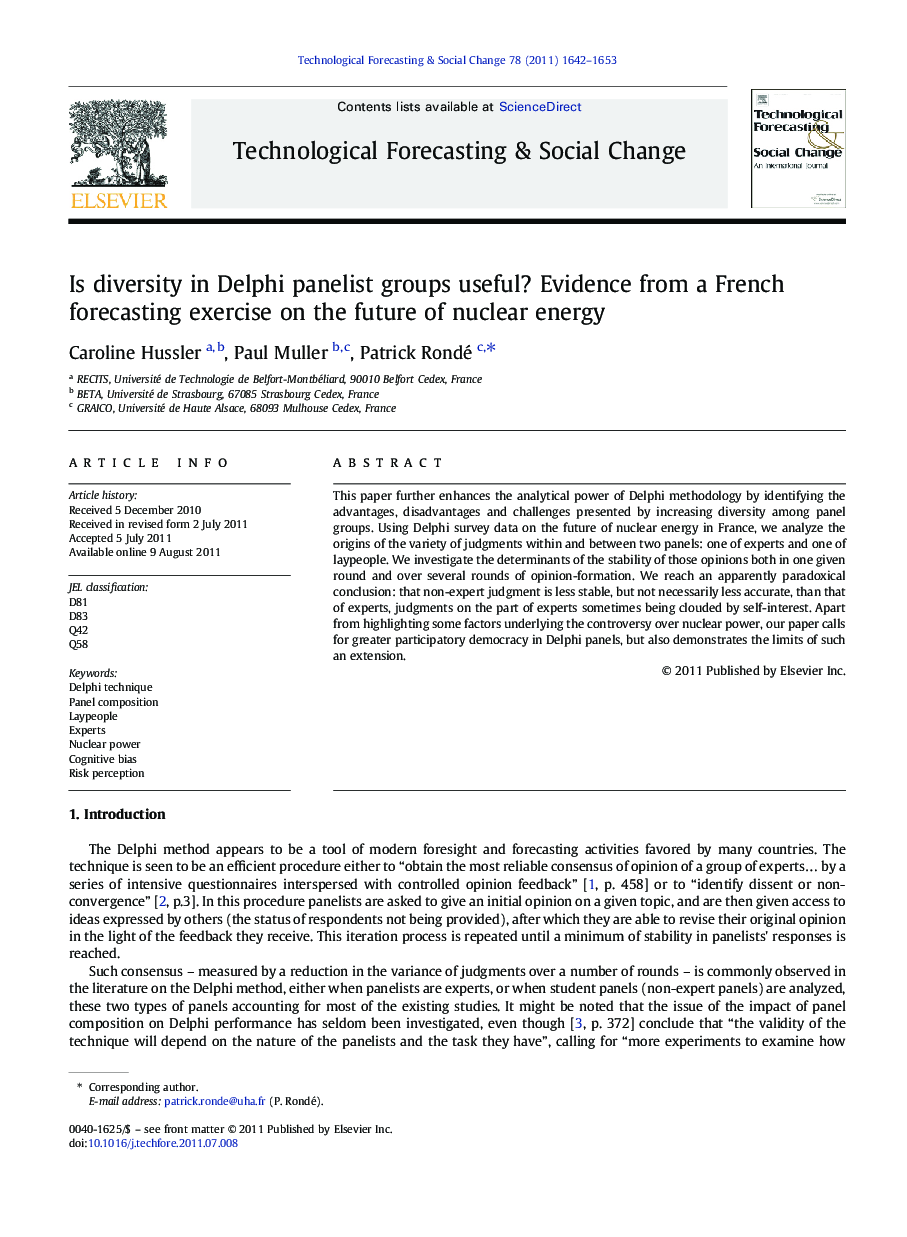| Article ID | Journal | Published Year | Pages | File Type |
|---|---|---|---|---|
| 896920 | Technological Forecasting and Social Change | 2011 | 12 Pages |
This paper further enhances the analytical power of Delphi methodology by identifying the advantages, disadvantages and challenges presented by increasing diversity among panel groups. Using Delphi survey data on the future of nuclear energy in France, we analyze the origins of the variety of judgments within and between two panels: one of experts and one of laypeople. We investigate the determinants of the stability of those opinions both in one given round and over several rounds of opinion-formation. We reach an apparently paradoxical conclusion: that non-expert judgment is less stable, but not necessarily less accurate, than that of experts, judgments on the part of experts sometimes being clouded by self-interest. Apart from highlighting some factors underlying the controversy over nuclear power, our paper calls for greater participatory democracy in Delphi panels, but also demonstrates the limits of such an extension.
